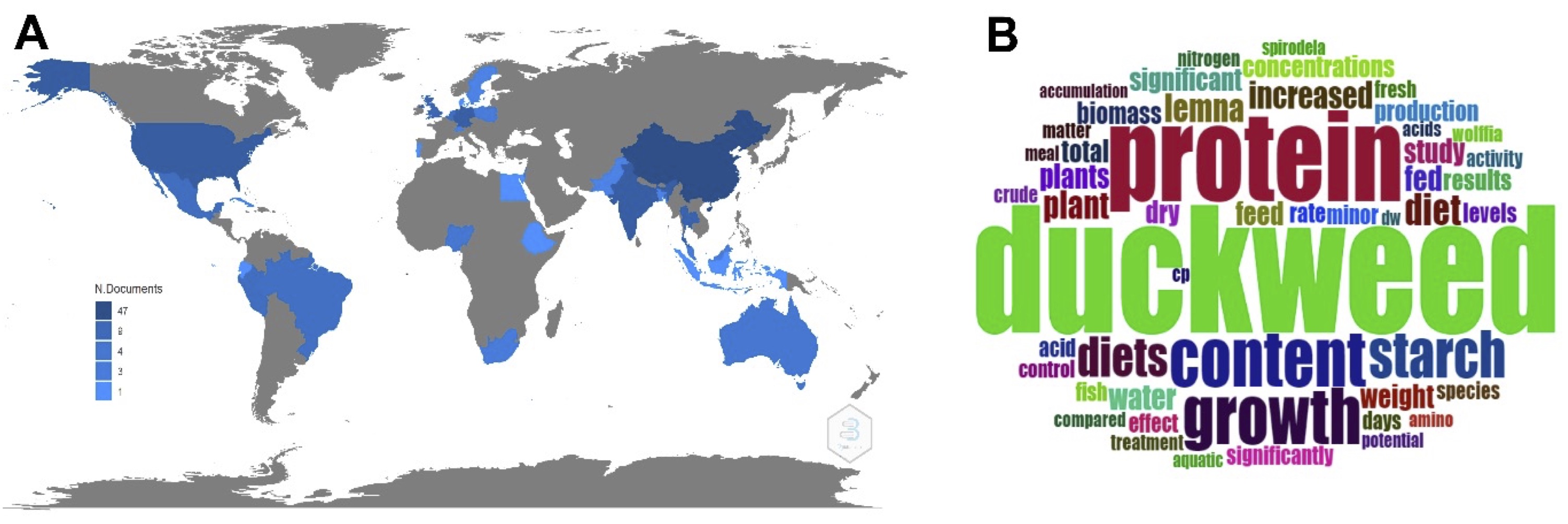Duckweeds are the smallest flowering plants on Earth. They grow fast on water's surface and produce large amounts of biomass. Further, duckweeds display high adaptability, and species are found around the globe growing under different environmental conditions. In this work, we report the composition of 21 ecotypes of fourteen species of duckweeds belonging to the two sub-families of the group (Lemnoideae and Wolffioideae). It is reported the presence of starch and the composition of soluble sugars, cell walls, amino acids, phenolics, and tannins. These data were combined with literature data recovered from 85 publications to produce a compiled analysis that affords the examination of duckweeds as possible food sources for human consumption. We compare duckweeds compositions with some of the most common food sources and conclude that duckweed, which is already in use as food in Asia, can be an interesting food source anywhere in the world.

